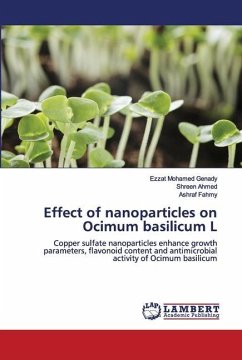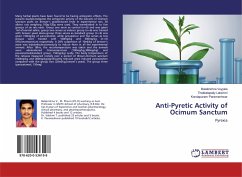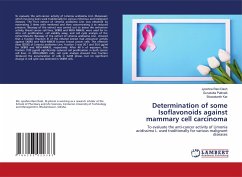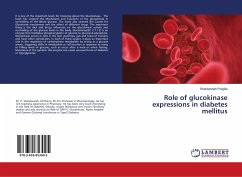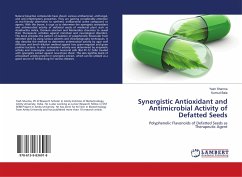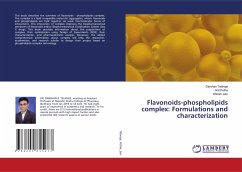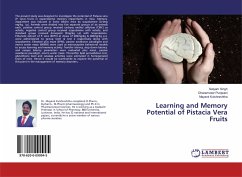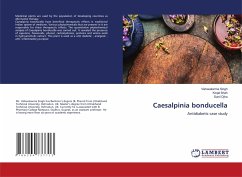Nanotechnology has provided new insights in Phytomedicine. We hypothesized that copper sulfate nanoparticles (CuSO4-NPs) enhance growth parameters, flavonoid content and antimicrobial activity of sweet basil (Ocimum basilicum L.). In order to test our hypothesis, the impact of copper sulphate versus CuSO4-NPs on sweet basil was tested. The treatment with 5, 10 and 15 µM/LCuSO4-NPsenhanced the growth parameters (fresh weight, root and shoot length) where 5µM was found to be optimal. Flavonoids were present in all tested samples. The group treated with CuSO4-NPs showed the highest levels of flavonoid content calculated as quercetin equivalent as compared to other control groups. TheCuSO4-NPs also exhibited higher antimicrobial activity against the 13 tested microorganisms included in this study. The Klebsiella pneumonia was most sensitive to the CuSO4-NPstreatment. The optimum CuSO4-NPs concentration for the flavonoid content and antimicrobial activity was10µM. To the best of knowledge, this is the first in vitro CuSO4-NPs application of Ocimum basilicum L. to enhance its pharmaceutical performance characteristics.
Bitte wählen Sie Ihr Anliegen aus.
Rechnungen
Retourenschein anfordern
Bestellstatus
Storno

